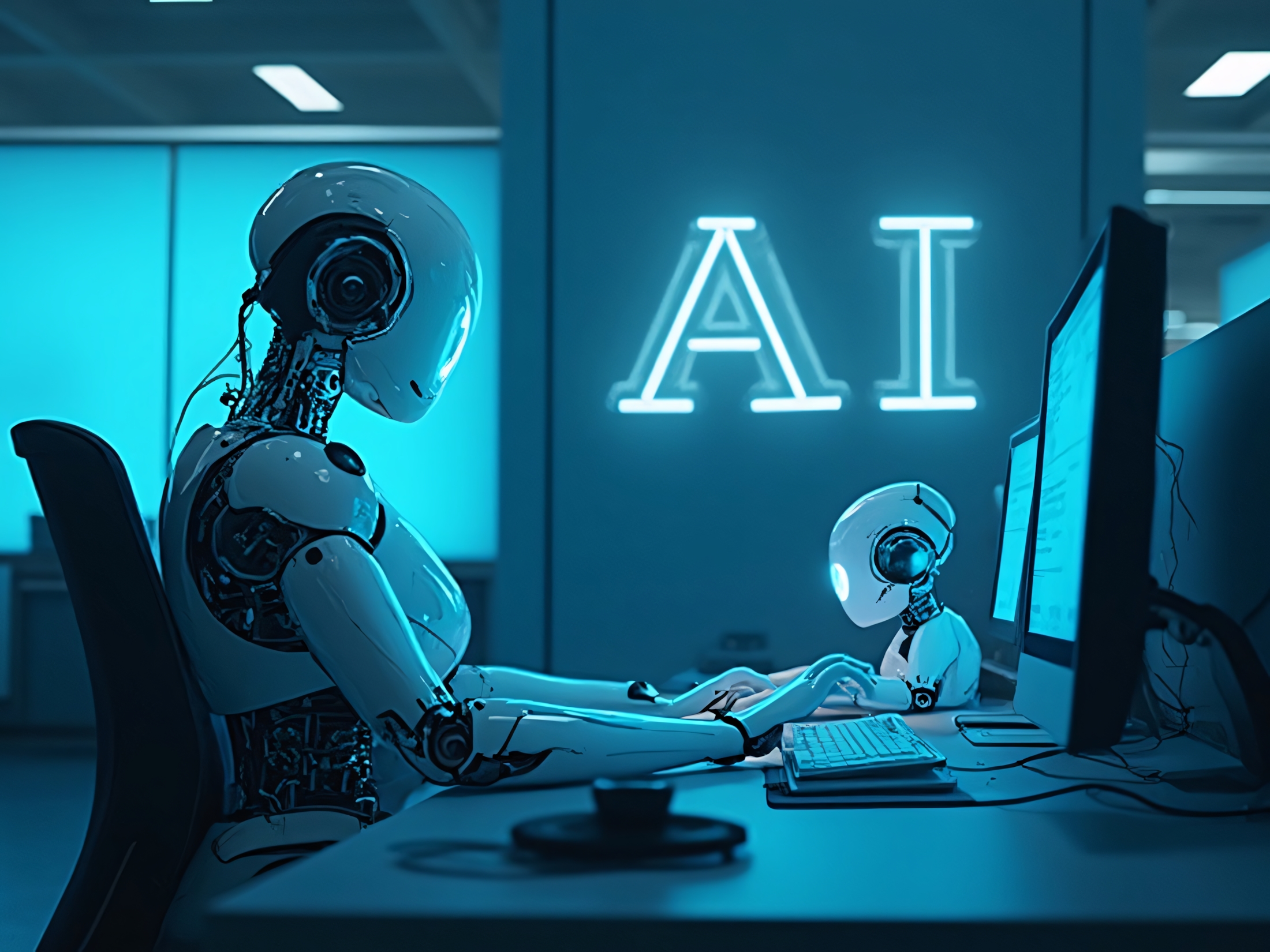Building the UK’s AI advantage: why upskilling can’t be an afterthought
Humans will be left behind without the skills necessary to prosper in an AI-driven society

Sign up for breaking news, reviews, opinion, top tech deals, and more.
You are now subscribed
Your newsletter sign-up was successful
The biggest threat to the UK economy as AI begins to transform it is not that machines will replace us; rather, it is that humans will be left behind without the skills necessary to prosper in an AI-driven society.
Businesses are being forced to make tough decisions due to constrained budgets and growing compute prices, even though 90% of global IT leaders are investing in AI tools.
UK&I Managing Director & Country Leader at Databricks.
Budgets for employee training are being actively cut by almost one in five UK companies, threatening long-term competitiveness.
Even with the Government committing £2 billion to establish the UK as a leader in AI, we must keep in mind that infrastructure on its own won't drive change.
Without people who know how to make use of it, even the most sophisticated technology means little. Skills and training must be hard-coded into the strategy from the beginning in order to maximize the benefits of AI.
Prioritizing skills in the AI agenda
Investing in AI frequently starts with infrastructure, including platforms, computing, and models. All too frequently, however, skill development is viewed as optional or put aside until "later." Often, later never arrives.
Businesses end up automating processes without giving employees the freedom to evolve as a result. Although this type of automation lowers costs in the short term, it hinders innovation, lowers morale and creates aversion to change.
Sign up to the TechRadar Pro newsletter to get all the top news, opinion, features and guidance your business needs to succeed!
Instead, we need to help people work with AI. That doesn’t mean turning everyone into a machine learning engineer. It means giving teams the confidence and capability to use AI to solve problems, make better decisions and focus on higher-value work.
That shift is what delivers lasting ROI, not just from the technology but from the people behind it.
Harnessing existing workforce capabilities
The positive is that the majority of businesses already have in-house experts in their fields. Existing teams can use AI tools to automate the repetitive and elevate the creative, allowing them to further develop their positions with the correct support. However, this cannot occur in isolation.
From the start, skill development must be incorporated into AI strategy, change initiatives and everyday operations. It demands more than a single center of excellence or training module. It requires a culture that demystifies AI and encourages lifelong learning.
This also means ensuring training isn’t limited to abstract or academic environments. People learn best when they see how AI works in the real world, where they can experiment, get feedback and solve the problems that matter to them.
Embedding access and inclusion in AI strategy
The movement to democratise access to AI education is gaining traction on a global scale. High-quality, practical training, particularly when it is provided for free, helps create a more varied pipeline of AI-literate talent and level the playing field for skilled people everywhere.
Access to enterprise-grade tools and learning materials can help anybody, whether they are a student, an early career professional, or someone changing careers, to acquire useful skills in data engineering, analytics and AI development.
By removing barriers to entry, more people get practical experience in applied problem solving, which reflects the difficulties that businesses deal with on a daily basis.
Enterprises, too, should invest in domain-specific upskilling. Most of tomorrow’s AI-specific jobs won’t be brand new; they’ll be existing roles transformed by access to real-time intelligence and automation.
This means training must be tailored, contextual and aligned to what teams actually do day-to-day.
Building trust through practical AI deployment
Ultimately, when workers see AI in action in their own domain, their confidence in it builds. Scaling and safely integrating technologies into actual workflows is crucial.
This means breaking down data silos, putting in place transparent governance and deploying AI agents into the platforms that people currently use. The most inclusive innovations meet users where they are, rather than requiring teams to start from scratch.
This strategy lowers friction, encourages trust and motivates cross-functional teams to work together towards common objectives. AI moves from being a technical initiative to a business-wide asset when it is integrated into decision-making across operations, customer service, and products.
Positioning people at the core of AI leadership
Training must be the cornerstone of innovation rather than an afterthought if the UK and its businesses are to be at the forefront of the AI economy. Those who can use AI and data to address practical issues at all levels of the workforce will be most successful.
In addition to being beneficial for businesses, investing in broad upskilling is a national benefit more broadly. To guarantee that this generation of AI is one of inclusivity, opportunity and shared development rather than one in which potential is lost due to limited access, we must take action immediately.
Now is the time to stop treating skills as an afterthought and start making them the bedrock of the UK’s AI future. We must build from the ground up, empowering each individual along the way.
We list the best employee experience tools.
This article was produced as part of TechRadarPro's Expert Insights channel where we feature the best and brightest minds in the technology industry today. The views expressed here are those of the author and are not necessarily those of TechRadarPro or Future plc. If you are interested in contributing find out more here: https://www.techradar.com/news/submit-your-story-to-techradar-pro
UK&I Managing Director & Country Leader at Databricks.
You must confirm your public display name before commenting
Please logout and then login again, you will then be prompted to enter your display name.
